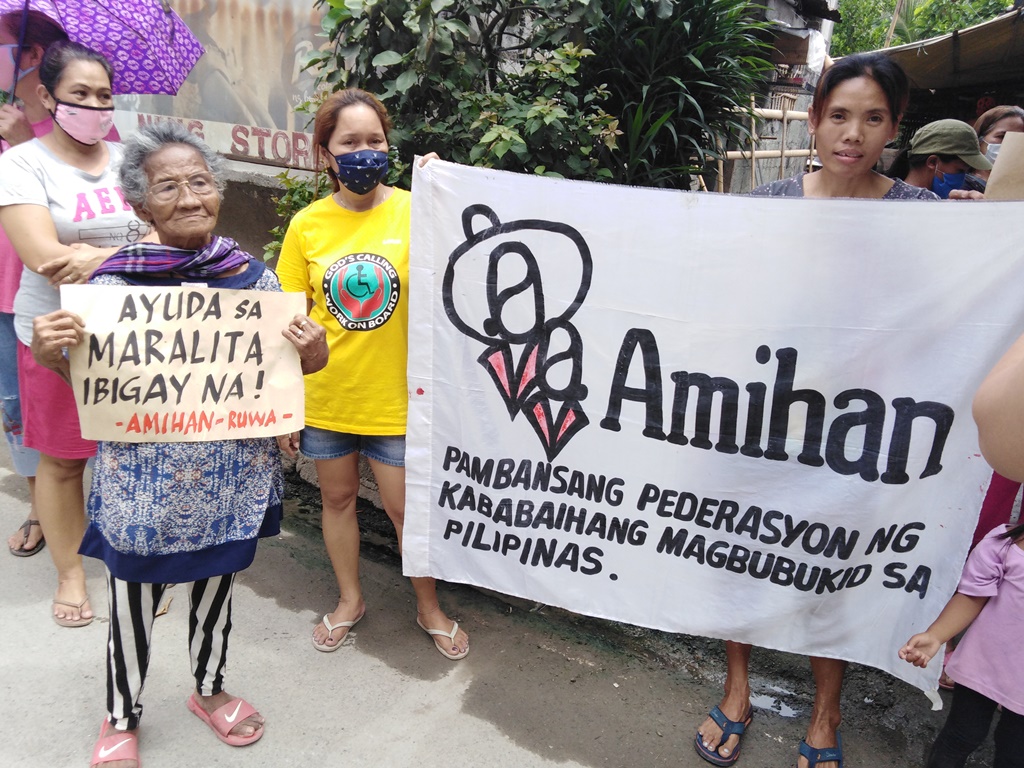The National Federation of Peasant Women (Amihan) listed down ten demands to ensure the country’s food security and self-reliance during and post lockdown.
“As we honor the important role of mothers all over the world, it is also important to provide them with necessary services and opportunities to realize their full potential as a mother and as a productive force of society,” Amihan national chairperson Zenaida Soriano said.
“Pangunahing inaasahan ang mga nanay sa paghahanda ng pagkain kaya pangunahing mga nanay din ang bumabalikat sa problema kapag wala o kulang ang inihahaing pagkain para sa pamilya. Mothers, especially peasant women continues to suffer fear and anxiety as they are unable to provide food for their families or they may run out of food, while being threatened by the checkpoints manned by elements of the police and military. The loss of their livelihood caused their non-capacity to buy food, medicines and other necessities,” Soriano added.
“Eight weeks into the lockdown but economic aid has been very slow and minimal making the future even more uncertain for peasant families,” Soriano said.
The Ibon Foundation noted that the Department of Agriculture’s Financial Subsidy to Rice Farmers (FSRF) targets only 591,246 beneficiaries while there are about 2.5 million farmers, farm workers and fisher folk economically dislocated by the ECQ. However, as of April 28, 2020, the government has only served 266,284 farmers.
Amihan also lambasted the continuing dependence of the Duterte government on importation instead of strengthening local food production through provision of subsidies and support services to farmers.
Amihan reiterated the following demands to help farmers, farm and agricultural workers, fisher folk and peasant women and attain food security and self-reliance during and after lockdown:
1. Provide P10,000 emergency cash assistance for every farming and fisher folk family affected by the Enhanced Community Quarantine (ECQ) in Luzon and other provinces.
2. Provide P15,000 production subsidy for the more than 2 million rice farmers. Strict implementation of price control on farm inputs and other implements for production as well as on food and other basic commodities.
3. Condonation of payments of land rent, land amortization and other arrears of farmers and agrarian reform beneficiaries.
4. Ensure unhampered food production by allowing farmers and farm workers as well as traders to go to the farm lands, continuous operation of shops selling farm inputs and equipment and transportation for agricultural produce.
5. Continuous irrigation services during the lockdown and development of irrigation facilities through the construction of small-scale irrigation systems. Ensure the implementation of the Free Irrigation Services Act.
6. Strengthen the role of the National Food Authority and restore its regulatory functions. Increase its palay procurement to 20 percent of the local production to ensure the supply of affordable rice. Palay farmgate price should be at least P20 per kilo.
7. Implement a moratorium on land-use conversion to preserve our agricultural lands for food production.
8. Scrap RA 11203 or the Rice Liberalization Law and prioritize the genuine development of the local rice industry.
9. Enact HB 477 o Rice Industry Development Act (RIDA) which pushes for the strengthening of the NFA and a Rice Development Program which includes socialized credit, irrigation development, post-harvest facilities, and production support and HB 239 o Genuine Agrarian Reform Bill (GARB) which seeks to distribute lands to the farmers for free and provision of support services and subsidies to farmers and protection of agricultural lands from land-use conversion.
10. Pull-out of World Trade Organization – Agreement on Agriculture and stop policies liberalizing the agriculture sector.
“The government should take proactive measures to ensure the country’s food security based on self-sufficiency and self-reliance to win the battle against COVID-19 and hunger,” Soriano ended. ###

